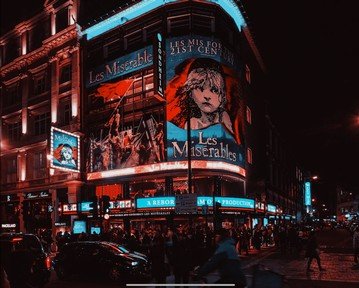
The Most Dark and Miserable of Songs Quiz
The Songs of "Les Miserables"
Many song titles sound typically dark and miserable, but do they all belong to "Les Miserables" or are some from other musicals altogether? Identify which of the following musical songs are in fact from "Les Miserables" and which are just miserable!
A collection quiz
by timydamonkey.
Estimated time: 3 mins.